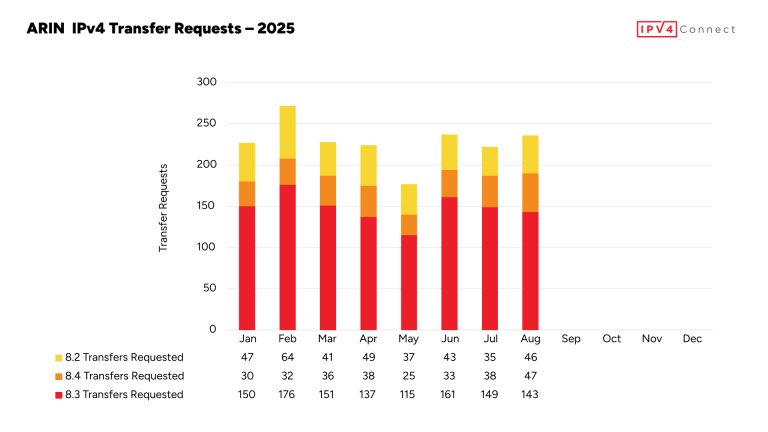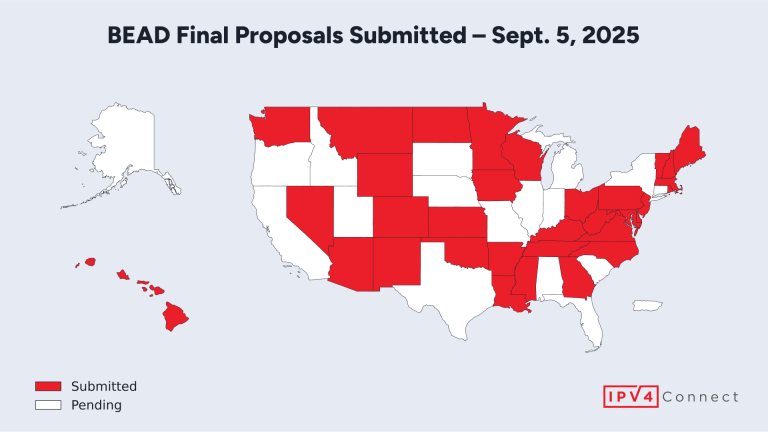IPv4 Demand Holds Steady as Market Awaits Next Shift
The IPv4 market remains stable with strong demand and competitive pricing. BEAD funding in 2026 could drive the next wave of price increases.
The BEAD (Broadband Equity Access and Deployment) program aims to expand high-speed internet access in underserved communities. It focuses on enhancing digital equity nationwide, offering grants to improve infrastructure and connectivity.

The IPv4 market remains stable with strong demand and competitive pricing. BEAD funding in 2026 could drive the next wave of price increases.

New York launches $636M broadband expansion, funding fiber, wireless, and satellite projects to connect 54,000 homes under the BEAD program

Ohio awards Starlink $51.6M to deliver broadband to 31,000 homes. Satellite wins 41% of BEAD sites, the largest share in the state.

36 states finalize BEAD plans, submitting proposals to NTIA detailing broadband strategies, funding allocations, and chosen technology.

Montana awarded Starlink $119M in BEAD funds to connect 20,000 rural locations, favoring satellite over fiber to save costs in broadband expansion.

Minnesota’s $392 Million broadband push plans to bring fiber to rural farms , fueling business growth and closing the digital divide

Nebraska proposed spending just $43.8M of $405M in BEAD funds, leaving rural communities with satellite over fiber broadband.

Pennsylvania provisionally approves $793.4M in BEAD grants, aiming for universal broadband access with fiber, wireless, and satellite projects.

West Virginia recommends nine providers for $624.7M BEAD awards, with Frontier and Citynet leading, and fiber dominating most projects.

Amazon Kuiper and Starlink secured half of Colorado’s BEAD locations, but just 8% of $826M broadband funding.
Email me when new IPv4 inventory matches my criteria.
Error: Block data unavailable.
You’ll now receive email alerts when new IPv4 inventory matches your preferences.
Are you absolutely sure you want to delete your account? This action cannot be undone.